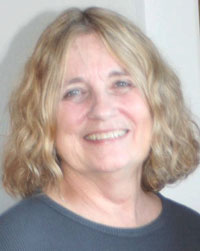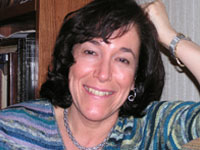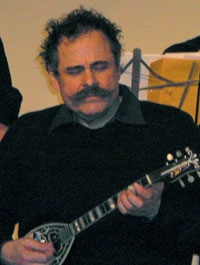The Relational Pulse:
Controversies, Caricatures, and Clinical Wisdom
Next IARPP annual conference in
Toronto, Canada
25–28 June 2015
by Hazel Ipp (Canada), Spyros D. Orfanos (USA), and Malcolm Slavin (USA)
Eleven years ago in 2003, in Toronto, Canada, IARPP held its second international conference. The conference was titled Evolving Perspectives on Therapeutic Impasse: Relational Analysts at Work and proved a major success for our then budding membership organization. The co-sponsor was the generous Toronto Institute for Contemporary Psychoanalysis. In 2015, Toronto will be the setting once again for our international meeting, this time with the title: The Relational Pulse: Controversies, Caricatures and Clinical Wisdom.
Located in the Southern Ontario region of Canada on the northwestern shore of Lake Ontario, Toronto is a city that teems with energy, scholarship, diversity, culture, great weather, and hospitality. Our hotel base is the InterContinental Toronto Centre, an oasis for the global traveler.
Co-Chairs Margaret J. Black, Jody M. Davies, Hazel Ipp, and Spyros D. Orfanos, all veterans in conference organizing and founders of IARPP, promise that this will be one of the finest relational conferences ever in the history of IARPP. The bar as we know is set high with amazing past conferences in Athens, Madrid, New York (2), Rome, San Francisco, Santa Monica, Santiago, Tel Aviv, and Washington, D.C. Starting on Thursday, 25 June and going through Sunday, 28 June, alpha world city Toronto, the largest and most cosmopolitan in Canada, will host psychotherapists and psychoanalysts from around the globe eager to engage, present, and learn about the current state of the relational perspective.
Since Mitchell first coined the term relational psychoanalysis, these words have comprised a range of models and clinical biases that share significant features yet sometimes diverge quite radically. Major differences mark the interpersonal, self psychological, object relational, existential and other versions of relationality. Mitchell’s comparative method illuminated how each version is rooted in differing assumptions about the mind, growth, and treatment. Each has its distinctive narratives and style of practice.
Proponents of each of these versions of what is relational often want to equate themselves with the relational perspective as a whole. And critics—both from within the relational world and outside it—often critique some caricatured, partial version of the relational perspective. As if the diverse relational whole were in fact equated with one of its multiple contending parts and clinical practices.
So, well beyond the superficial notion of an inclusive, tolerant “broad tent,” this conference will explore an alternative view: that the greatest strength of the relational perspective emerges when the multiple emphases within it are held in a creative tension—a dialectical tension in which each complements, as well as clashes, with the others.
While quite challenging to the clinician—inevitably demanding the analyst’s radical openness both to themselves and to their patients—this vision of relational multiplicity is, we believe, less likely to become narrowly enshrined as the correct relational—or analytic—path. It is, we believe, how we can use our differences—as Mitchell used the comparative psychoanalytic method—to grow, change, and expand the meanings of what is relational from within.
Viewing clinical material within each of our plenaries, we’ll explore how these various emphases within the relational paradigm actually differs from the others and expresses itself within the treatment relationship. What does it mean that we emphasize opening up to oneself? How does one live in the dialectical tensions, the heightened paradoxes, that clashing perspectives will invariably evoke? How can we attempt to live creatively and effectively in the conflicts and inherent multiplicity of the relational analytic world?
In addition to refereed papers and panels, we will have five plenary sessions with small group discussion sessions which act as centerpieces of the conference and are tentatively titled:
- Multiplicity and unity within relational psychoanalysis: convergences, controversies and creative tensions
- In and out of our minds: The analyst’s engagement with both intrapsychic and intersubjective experience
- Thinking about power and authority in relational psychoanalysis
- Regression, self states, and the developmental dimension in relational psychoanalysis
- The use of our multiplicity: Creative potentials in our differences and what we share
Creating a state-of-the-art conference requires many minds and hands so in addition to the co-chairs we have a Steering Committee, a Local Committee, and Proposal Review Committee all with the aim of organizing not just a conference but an unforgettable experience. The members of the Steering Committee are Tony Bass, Gianni Nebbiosi, Susi Federici-Nebbiosi, Gary Rodin, and Malcolm Slavin. The members of the Local Committee are Margaret Amerongen, Ann Baranowski, Stephanie Bot, Beth Goldstein, Judi Kobrick, Kadri Ann Laar, Marilyn Lerner, Deborah Levine, Catherine Martin, Faye Mishna, Hilary Offman, and Gary Taerk. The Proposal Review Committee is composed of all the members of the Steering Committee and the Local Committee and also includes Aaron Balick, Sharon Beiman, Alejandro Ávila Espada, Marianne Kennedy, and Juan Francisco Jordan Moore.
Stay tuned for more information and plan to join us in what has been called the “alpha world city” of Canada and think about the fact that a week after the conference, Toronto will be will be hosting the 2015 Pan American Games.







